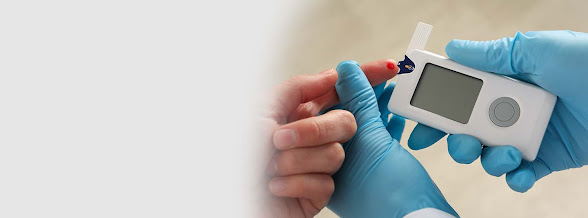Hypothyroidism And Its Treatment
Hypothyroidism or underactive thyroid is a medical condition wherein one is not able to meet his/her body’s needs because of insufficient levels of thyroid hormones. It is considered a common disorder of the thyroid.
The thyroid is a small, butterfly-shaped gland in the front part of the neck which is responsible for the production of thyroid hormones T3 (Triiodothyronine) and T4 (Thyroxine). The pituitary gland controls the functions of this gland by producing thyroid-stimulating hormones (TSH). The thyroid hormones control various metabolism of the body and together regulates how well the body uses energy. This means they affect every body organ including the way the heart beats. Without them, many body functions slow down. Read on to know more about hypothyroidism symptoms, causes, diagnosis, and treatment options offered by Dr. Sudhakar Reddy, an expert Endocrinologist in Hyderabad at MAGNA Centre for Obesity Diabetes and Endocrinology.
Symptoms of Hypothyroidism
The signs of hypothyroidism vary among patients. Some common symptoms are:
Weight gain
Extreme tiredness or lack of energy
Muscle and joint pain
Slowed heart rate
Difficulty in tolerating cold weather
Dry, thinning hair or dry skin
Depression
Constipation
Fluid accumulation inside the body
Irregular or heavy menses or fertility issues and miscarriages
Hypertension
Altered levels of cholesterols.
Some people might notice symptoms of hypothyroidism for months or even years because of the gradual development of the condition.
Causes of Hypothyroidism
Primary hypothyroidism is because of an issue with the thyroid gland itself. It can be the result of autoimmunity (production of Anti-TPO and Anti-TG immunoglobulins which attacks own body organs), radioactive iodine treatment, and post-thyroidectomy (surgical removal of the thyroid gland). It occurs in most patients. Secondary hypothyroidism is due to decreased production of TSH hormone by the pituitary gland. There are several causative factors of hypothyroidism, including:
Thyroiditis- inflammation of the thyroid gland
Surgical removal of all portions of the thyroid as a treatment for severe goiter, hyperthyroidism, and thyroid cancer or nodules
Hashimoto’s disease
Graves disease
Congenital hypothyroidism- the condition is present since birth
Radiation therapies of the thyroid like the use of radioactive iodine to treat hyperthyroidism
Some medications like those for cancers, bipolar disorders, and heart problems that are interfering with thyroid hormone production.
Diagnosis of Hypothyroidism
The early stage of hypothyroidism can be detected by some blood tests which are either part of regular health screening tests or when the patient has symptoms of hypothyroidism. The blood test is carried out to check for levels of T3, T4, and TSH hormones. The levels of TSH hormones get altered when there is slight abnormal functioning of the thyroid, hence it can be used as a screening test. To assess the degree of hypothyroidism, the doctor may ask for a blood test that measures the T4 hormone. The patients are labeled as having “subclinical hypothyroidism” when they have normal levels of T4 and elevated levels of TSH. However, when the T4 levels are low and TSH is on a spike, the patients are reported as having “overt hypothyroidism”.
Treatment of Hypothyroidism
The best Hypothyroidism Treatment in Hyderabad is offered at MAGNA Centre for Obesity Diabetes and Endocrinology by a team of expert doctors by conducting several tests and diagnosis of the root cause of the concern.
The treatment involves the replacement of the hormones that are no longer produced by the patient’s thyroid gland. It is a quite simple treatment where the patient is prescribed for daily intake of thyroid hormone pills such as levothyroxine (a synthetic form of thyroxine) on an empty stomach at the same time every day. Most patients are asked to continue taking pills as long as they live. After having the pill, there must be a gap of 30-60 minutes for the consumption of any beverages, food items, or other medications.
The treatment course must be followed as directed by the doctor. When starting with hormone replacement therapy, the doctor prescribes the doses based on the patient’s age, weight, health, and levels of thyroid hormones. If the doses of medications are adjusted or stopped by the patients whenever they feel like it, there are chances of having short-term or long-term health issues because of under or over-treatment of hypothyroidism. Therefore, an endocrinologist must be consulted who would help the patients in deciding the frequency of testing and adjustment of doses as per their status and co-morbid conditions. The target of TSH is again decided based on comorbid conditions, age, indications of hypothyroidism, and other factors. After about 6-8 weeks of taking medications, the doctor will recommend having blood tests to check for the levels of thyroid hormone. Depending upon the test reports, the doctor may change the doses. Once the levels of thyroid hormones are stable, blood tests will be conducted every half a year of the complete year. To ensure that hypothyroidism remains under control, the patients must stick with the same brand of thyroid hormone medication otherwise they may end up messing with their levels of thyroid hormone.
Another approach to treat hypothyroidism is to eat foods that do not have large amounts of iodine and avoid taking iodine supplements as its elevated levels in the body can cause or worsen hypothyroidism. This is because iodine is used by the thyroid gland to produce thyroid hormones. If one is pregnant, talk to a doctor about how much iodine must be taken to not let hypothyroidism happen.
If one is suffering from hypothyroidism or hypothyroidism and other hormonal issues they can consult the expert endocrinologist in Hyderabad at MAGNA Centre for Obesity Diabetes and Endocrinology.




Comments
Post a Comment